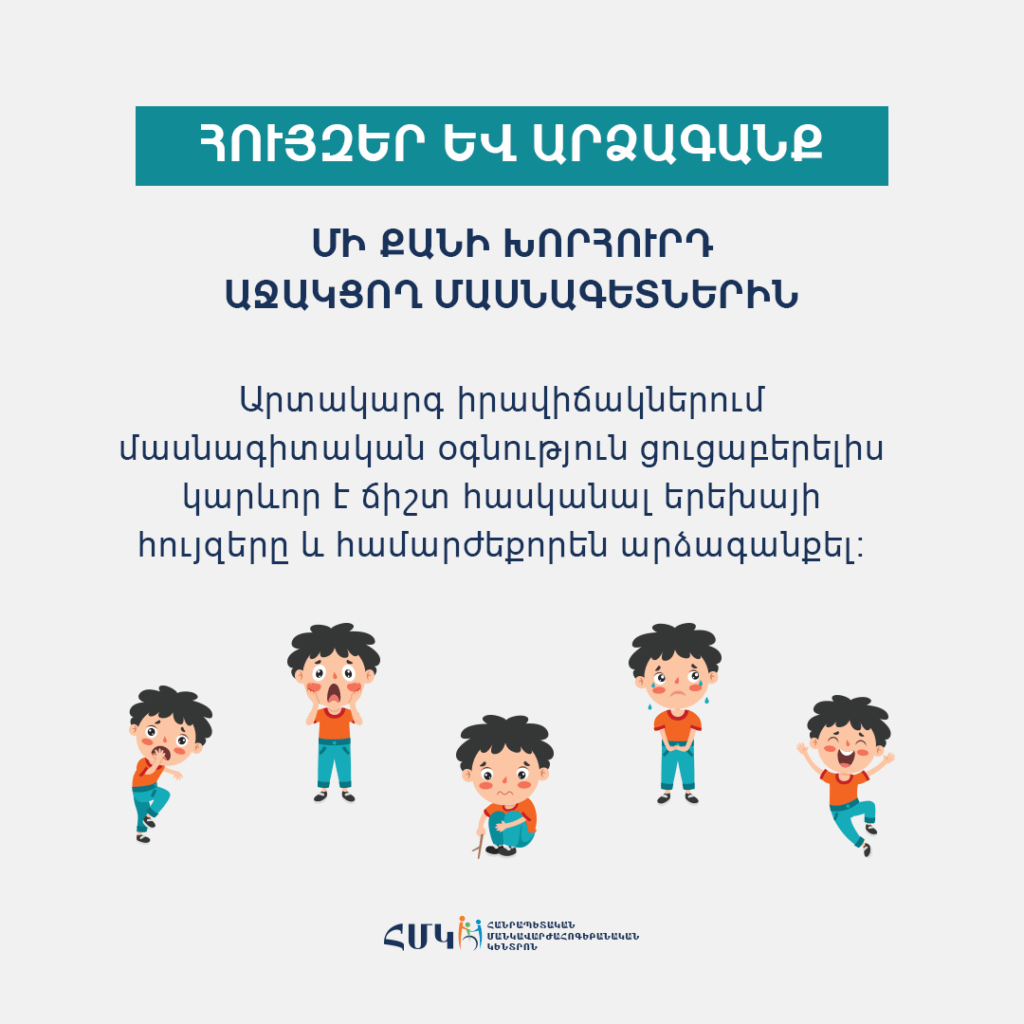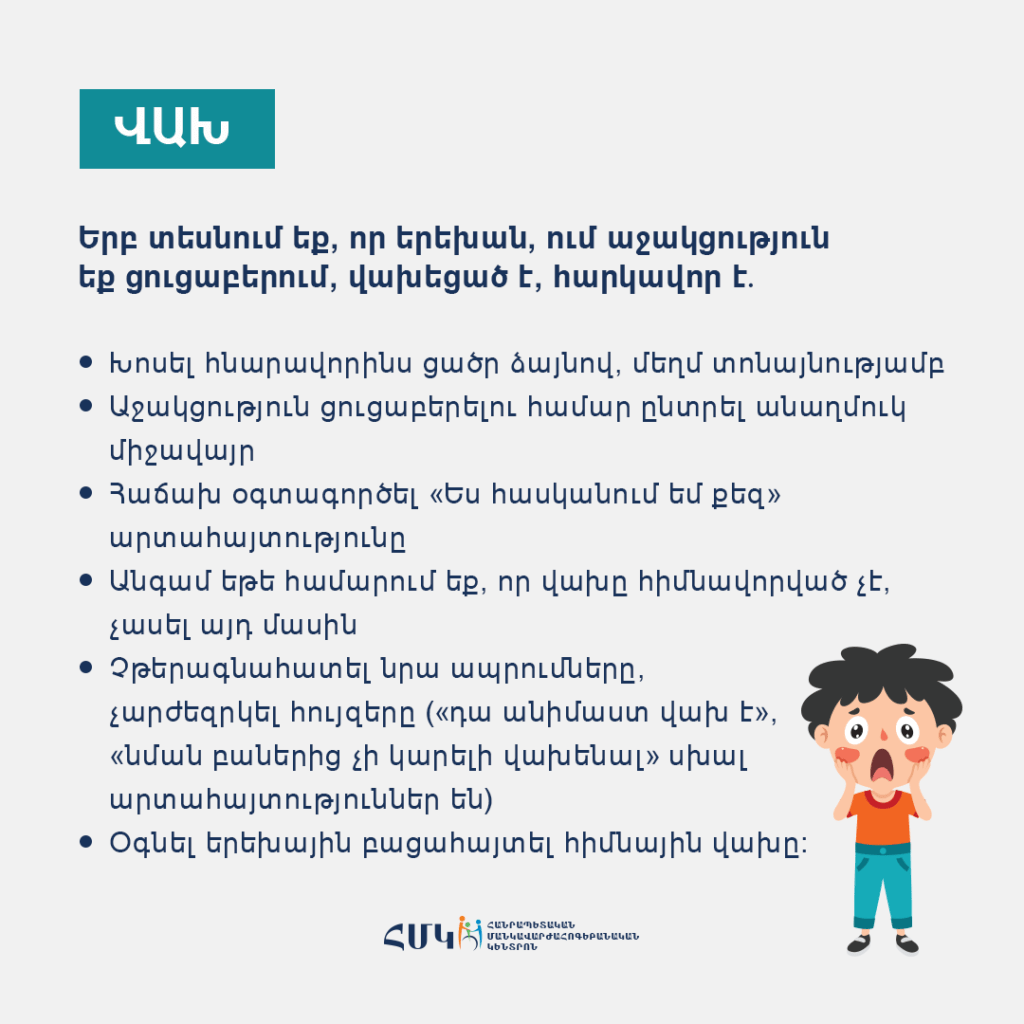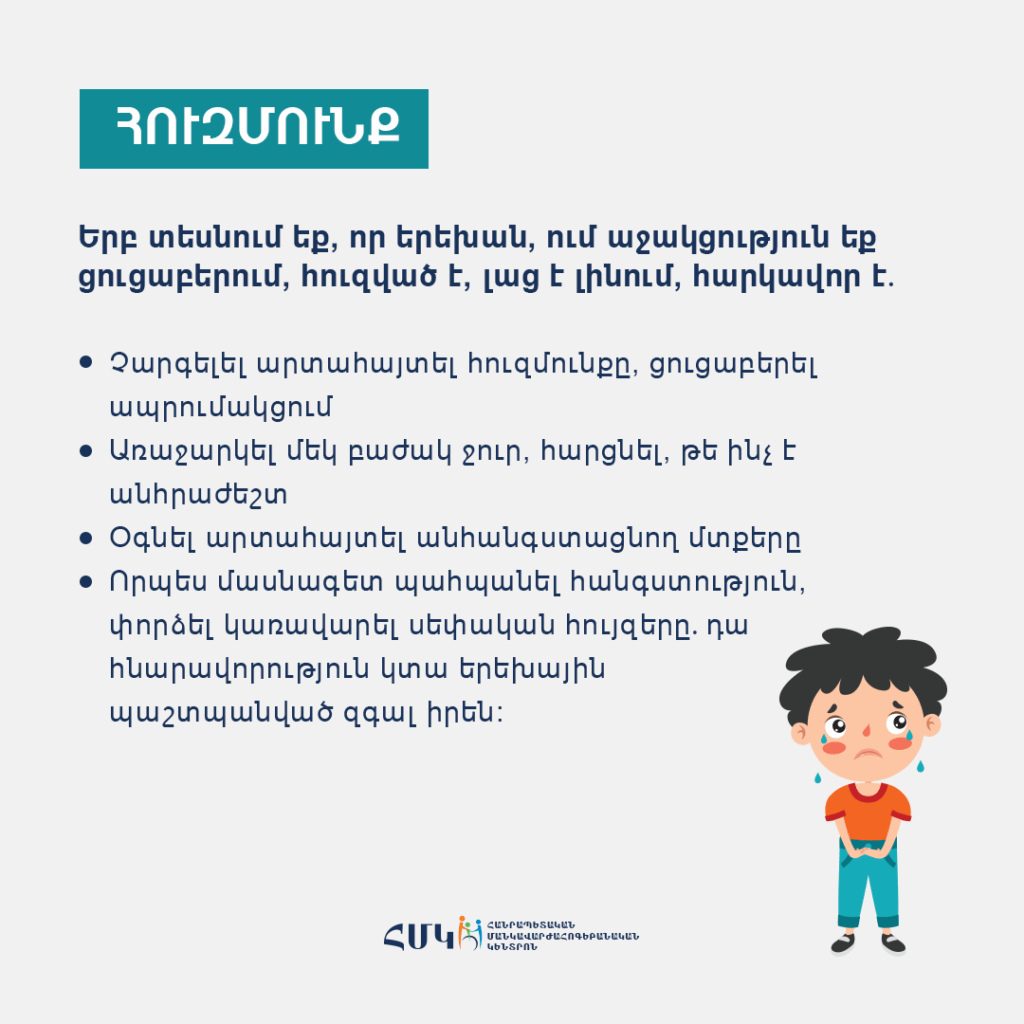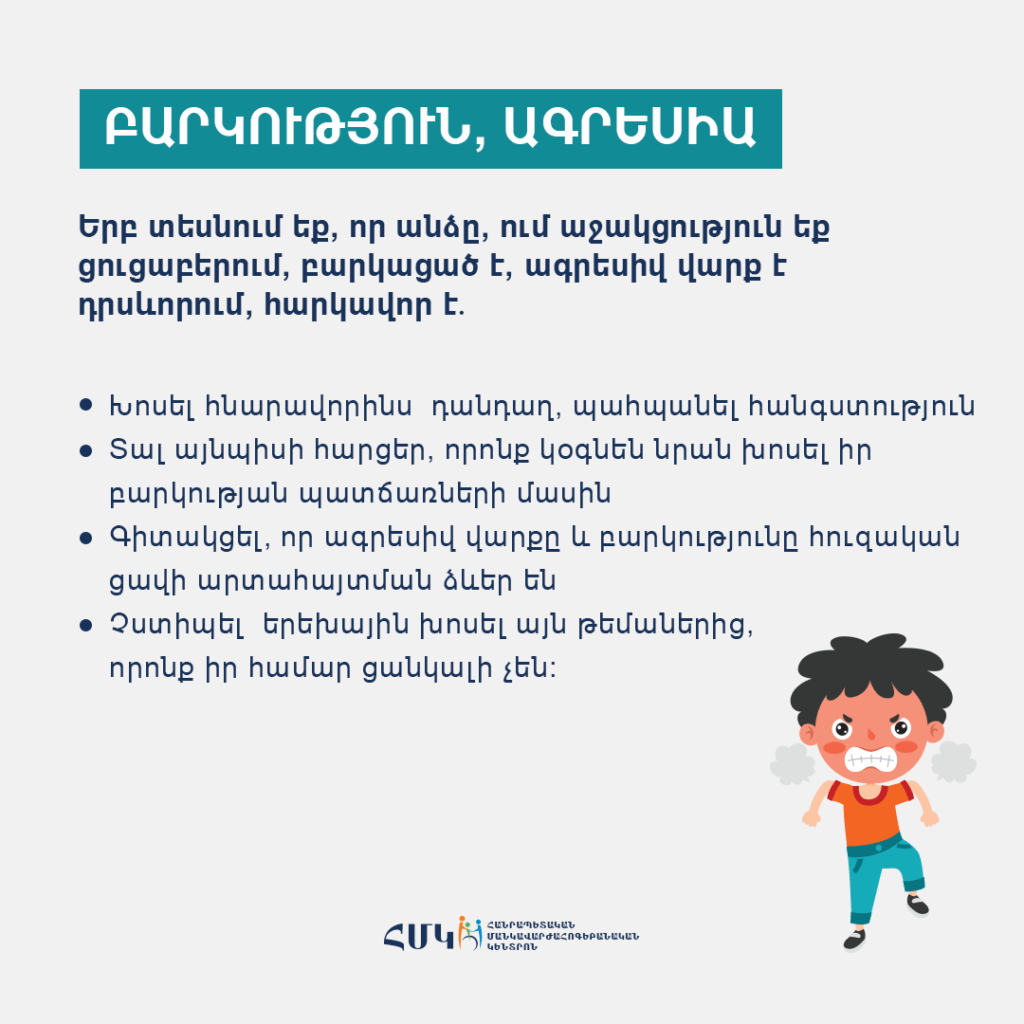While supporting children in emergency situations, it is important to correctly understand their emotions for appropriately responding.
Fear: If the child is scared, you need to:
- ✦ Speak as low as possible in a soft tone
- ✦ Choose a quiet environment for conversation
- ✦ Often use the phrase “I understand you”
- ✦ Also, even if you think the fear is unproven, don’t talk about it
- ✦ Don’t underestimate a child’s feelings, and don’t devalue emotions (Here are some inappropriate phrases “It’s a meaningless fear”, “Don’t be afraid of such things” etc)
- ✦ Help the child to identify the underlying fear
Anger, aggression։ When you see that the child is angry or aggressive, you should:
- ✦ Speak as slowly as possible, keep calm
- ✦ Ask questions that help to talk about the reasons for anger
- ✦ Realize that a child can behave aggressively
- ✦ Don’t force a child to talk about topics that are not desirable for him/her
Excitement։ When you see that the child is upset or crying, you should:
- ✦ Not forbid expressing excitement
- ✦ Show empathy
- ✦ Offer a glass of water, ask what is needed
- ✦ Also, you must help to express troubling thoughts
- ✦ As a specialist keep calm and try to control your emotions – it will help the child to feel protected






